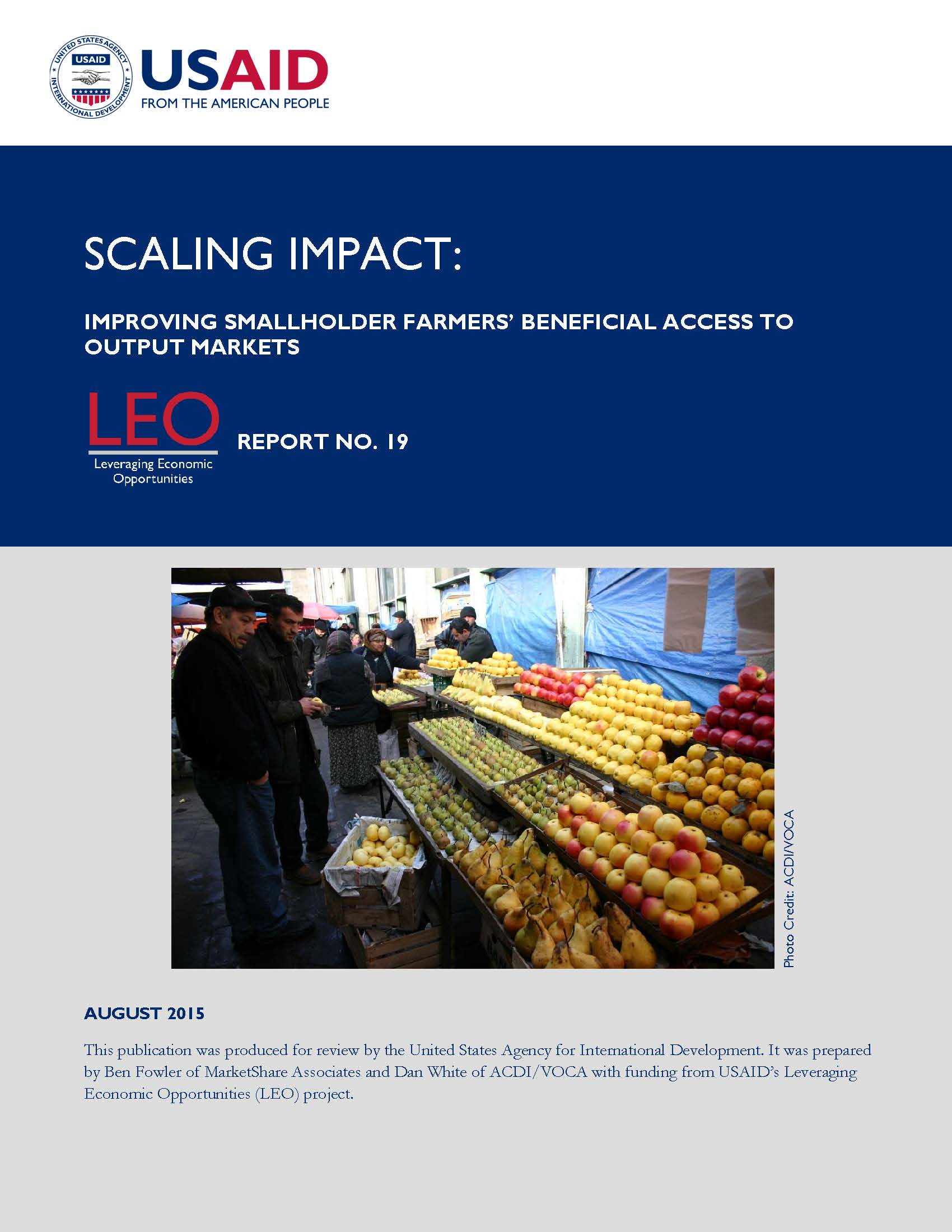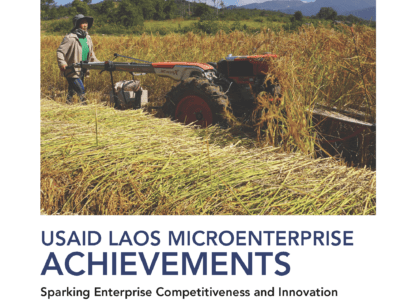
Smallholder farmers constitute a majority of the working population in much of the developing world, and they tend to be stuck in patterns of semi-subsistence farming, unable to generate sufficient income to access key services to further their pathways out of poverty. Beneficial access to output markets—defined as farmers selling increased volumes of produce at an increased margin per unit with reduced volatility—is inextricably linked to smallholder farmer income.
This report aims to inform the efforts of donors and implementers of market systems development activities to improve smallholder farmers’ access to output markets. It does so by reviewing projects that have improved access, identifying the common barriers in those market systems, and describing the strategic approaches employed to address the barriers. Significant methodological challenges were faced in gathering neutral and comparable information in a timely manner: the heavy reliance on current and past project staff and project documents increased the influence of bias on the information gathered. In addition, different monitoring systems meant that the information gathered on farmer yields and gross margins was not comparable, and in many cases the lack of a counterfactual prohibited any substantial conclusions around efficacy.








